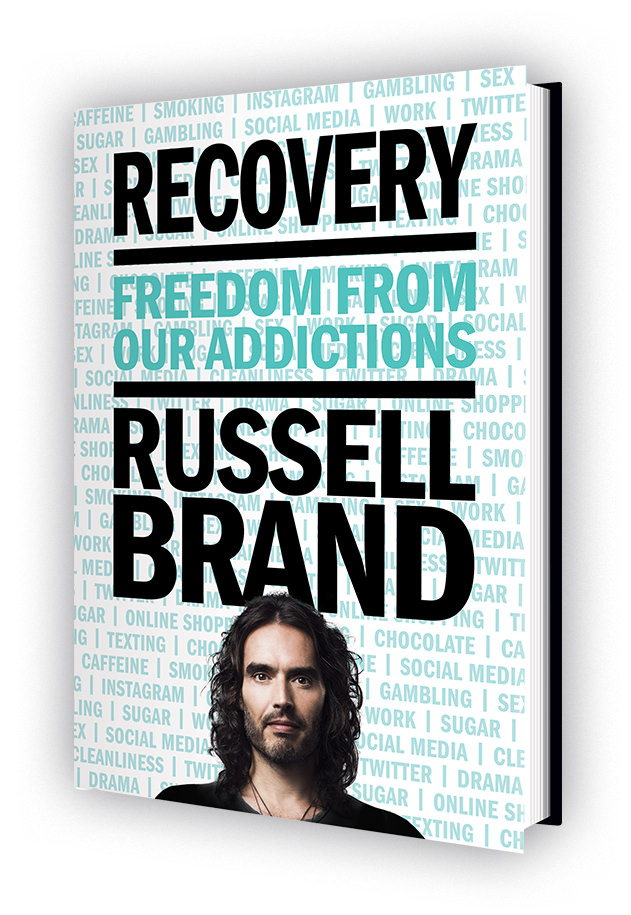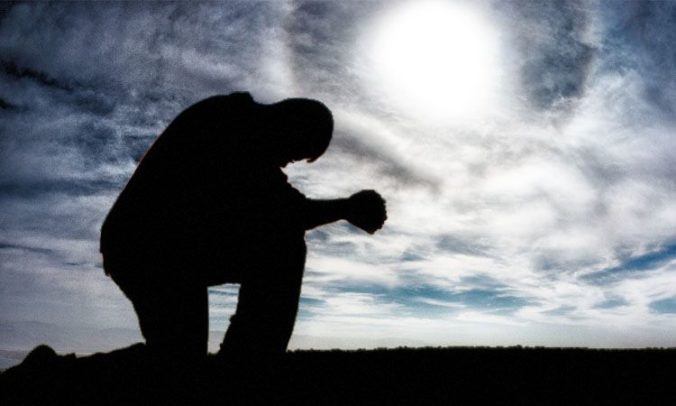THIS LIFE: AN UNEXPECTED HUMBLING
I recently attended the SURRENDER conference at Belgrave Heights Convention Centre. In its own words, SURRENDER “exists to raise up Christians to live the radical call of Jesus and follow him to the least, the last and the lost”. It is about learning how we can be better disciples who work with Jesus to transform his world.
Category: Humility (Page 1 of 2)
As I move forward in this life, I realise more that I can’t take for granted the personal growth I have already attained. I can’t rest on it. As I’ve said previously, the human heart is deceitful. When I’m going well I can fool myself that I can sit back and be complacent and rely on myself when in fact I need to stay out of the way of my own penchant for self-protection rather than love.
The good I did yesterday certainly counts, and it strengthens me, but it doesn’t guarantee that I will be surrendered again to God today. In the same way, if I was selfish and hurt people yesterday, that doesn’t guarantee that I will stay in that today. That is the great thing about forgiveness and grace. You can get up again anytime, straight away. I don’t have to stay in the shame of my past actions. God wants us to live. You can’t do that when you choose to stay stuck.
All we have is today. There is a saying that talks about living just for today. There is no point ruminating about yesterday’s mistakes, its aches and pains. Yesterday is gone and is never coming back. Similarly, tomorrow is not something we need to be anxious about; it hasn’t arrived yet. We can’t do anything about it. We can live surrendered today and therefore be stronger tomorrow, but it’s today that is what matters.
My past, good or bad, doesn’t define me. We are not what we do, and we are not what our minds often tell us. That’s where Descartes (‘I think, therefore I am’) was wrong. When our minds tell us that we are not worth getting to know, we can reject that for the lie that it is. You are not your mind.
I read an article yesterday about how the latest brain research says that we can physically rewire our brains by retraining them with the truth of who we are. When we get into the habit of retraining our brains, new neural pathways are physically created in our brains so that, the more we practise good habits, the easier they become to do.
What defines us is the fact that every single one of us has inherent dignity. The destructive things I have done in my life don’t mean I’m a bad person. Likewise, I can’t rest on the good things I have done in the past. I can easily undo them much faster than I built them up. That’s why I need to be in touch with myself every day.
Living for today is what matters to me. That can be misunderstood in terms of sucking the pleasure out of life and not caring about the consequences for tomorrow. That is exactly not what this means. That is actually being destructive and living out of our false self. Our true self, the us that God made and wants to release, is the self that lives for today without worrying about the shame of yesterday’s misdeeds or the uncertainty of tomorrow. It is the self that is present today, present to love, to surrender and therefore to joy no matter what life throws at you today.
Learning to live is learning to live on life’s terms, not on the terms I demand. The greatest prayer that I know to help with this is the Serenity Prayer:
God, grant me the serenity to accept what I can’t change, the courage to change what I can, and the wisdom to know the difference.
It’s a prayer of living in love, in grace, in forgiveness, in the present and in courage. I’m thankful that God answers such prayers, because I can’t do that on my own. I need outside help. And I only need to do it today.
I reckon humility is the hardest thing in the world.
From the moment we are born, we crave attention; we are desperate to be heard. It’s a normal human need. But even those who were brought up with the most loving and attentive parents have still had to deal with a deficit of attention. And so we spend our lives trying to get ourselves heard, our insides sometimes screaming for someone to just listen to us. We exalt ourselves, desperate to let people know how great we are. But humility teaches us the opposite; it teaches us that the ego has to die if we are to live.
When I am around people who have stuffed their lives up but are now recovering, I find their humility awe-inspiring and challenging. These people teach me what humility really is and in the process they show me how judgmental, arrogant and ‘superior’ I often am.
When you’re around truly humble people, those who know their own brokenness because it’s so obvious that there is just no hiding it, you see how far short you fall. But at the same time you don’t feel shamed by them. Humility has no interest in shaming anyone. It quietly, just through its actions, shows you a better way. That was the amazing balance of Jesus’ life. He loved people in their brokenness, and just by that, showed people how far short they fell. But he never shamed them. The only people he warned that they were in real trouble were the ones who were convinced they weren’t.
When I realise how far I fall short of the mark of humility, I actually can’t imagine myself ever being truly humble. My only hope is to ask God to do it for me.
I’ve made some huge mistakes in my life, with massive consequences. And yet I still find myself feeling judgmental and superior a lot of the time. That says much more about me than it does about those people.
To find out a bit more about what it might look like to actually be humble, I recently went back to a Christian classic from two decades ago, Philip Yancey’s What’s So Amazing About Grace?. Towards the end of the book, Yancey recalls Jesus’ meeting with the woman at the well in John 4. Instead of being moralistic and telling the woman how immoral she was by living with a man who was not her husband in that culture, he said, in effect, ‘I sense you are very thirsty,’ and proceeded to show her that the water she was drinking would never satisfy her, and then offered her something that would, forever.
Yancey then explains, “When I am tempted to recoil in horror from sinners, from “different” people, I remember what it must have been like for Jesus to live on earth. Perfect, sinless, Jesus had every right to be repulsed by the behaviour of those around him. Yet he treated notorious sinners with mercy and not judgment.” And yet I, who have caused so much havoc in my life, still have the gall to think I am better than others.
All this makes me want to sit at the feet of Jesus more. It was the rotten ones, the thieves, prostitutes and liars who flocked to Jesus because he accepted them for who they were. The Pharisees were shockingly offended when Jesus had the nerve to tell a story of how a tax collector, and not a ‘righteous’ religious person like a Pharisee, was actually more pleasing in God’s sight because the tax collector was humble and cried out to God for mercy.
It’s the notorious sinners who I want to be around, because I am one of them. I feel more comfortable with them than I do with the pious, self-righteous and judgmental ones; the latter remind me too much of myself.
Why do we run from love? Why do we run from what’s good for us?
In this life of contradictions that we are, sometimes we embrace love with all the courage in the world, and other times we run from it out of sheer terror and fear. I often tend towards the latter.
Deep down we don’t believe that we’re really worth loving. So we sabotage something that is really good, or we isolate ourselves when we’ve been invited to an event with good people who love us.
There is a profound little scene in the gospels where Peter has just caught a huge catch of fish after Jesus told him to put his net over the other side of the boat. Peter is not gobsmacked at the unbelievable amount of fish he has just caught; he is gobsmacked by the unbelievable generosity that Jesus showed him. He is so gobsmacked he can’t handle it. He tells Jesus to go away “for I am a sinful man.” Peter expresses the deep down belief of most of us, that we don’t deserve such outrageous love, especially when we haven’t done anything to earn it. But Jesus believes in Peter, knowing that Peter will stuff up (as he does later on, big time). Jesus says, no, I want you, with all your flaws, all your faults. Because I love you. In fact, you’re going to be the leader of this movement when I go. And Peter does, knowing his own weaknesses, but trusting in the love he has been given.
I heard a preacher say once that when we get to the end of our lives, one of the biggest things we are going to say is why didn’t we take more risks? We spend our lives turning ourselves away from love, keeping ourselves safe from hurt. Love is always risky, by its very nature it is open to hurt because it might not be returned. But as Mother Teresa said, love anyway.
C.S. Lewis said that we can lock ourselves away in our cocoon, safe from the world. In that cocoon we won’t be hurt, we won’t need to take any risks, and we can be sure that we will be safe. But in that cocoon you will slowly die, you will slowly rot away from who you really are, because you won’t know the freedom of living. Yes, when you love you will be hurt, but you will be alive. A heart that hurts is a heart that beats, sing U2, the band that more than any other has written the soundtrack of my life.
We run from love and find ourselves running toward the hell of our own loneliness. I do it so often I don’t even realise it. I don’t want to get hurt, I can’t bear the loss of rejection. But when I remember that love is the only way forward, and that I don’t need to prove my worth to anyone because I am already loved, then I can love others and be ok when that love is not returned. That’s not to say it doesn’t hurt; it does and I hate it. But I can cope.
Why do I walk away? Why do I run from love? There is something in me that doesn’t want to take that risk. But when you do, when you move forward in courage, you will be ok even if that love is not returned, or if it is thrown back in your face.
We love because God first loved us. That’s the incredibly fortunate position we are in. We don’t have to make the first move. It’s already been done for us. You have nothing to prove. We already have what we crave; we just need to accept it. And when we reject it, we can get up again because that love never leaves us. Nothing can take it away.
Martin Luther King said the moral arc of the universe is long, but it bends toward justice. It also bends towards hope and love.
I refuse to believe we are a meaningless conglomeration of atoms in the cosmic dark. I believe there is purpose in this universe, despite the hatred, despite the lies, despite the despair. Despite my brokenness, despite my lies, despite my judgmentalism, my fear, my resentments and my demand for affirmation.
God help me to run into the arms of your love, and to be not afraid to be held, to be weak, not afraid to give up my illusion of control. Help me to not run from love, but to surrender.
 I’d join the movement
I’d join the movement
If there was one I could believe in
Yeah I’d break bread and wine
If there was a church I could receive in
‘Cause I need it now
To take the cup
To fill it up
To drink it slow
I can’t let you go
I must be an acrobat
To talk like this
And act like that
– U2, Acrobat
I was talking with some friends tonight, and we got on to opening up about the contradictions we live with inside ourselves, how we can appear all righteous on the outside but have the darkest of thoughts on the inside. And they can happen from one minute to the next.
I am amazed often by my own contradictions. I can be incredibly loving to someone, and then minutes later have thoughts that are so selfish I wonder where they come from. I can relate to the acrobat in the song quoted above, talking like this and acting like that. I know my own hypocrisy, how I appear to so many people, but how I at times feel like a fraud. There’s that voice inside me that tells me that a genuine person would never have thoughts that are that egotistical. It’s the voice that says you’re never really good enough.
 Russell Brand is an addict. That doesn’t define him, but it is what he identifies as, and what he has to remind himself of every single day.
Russell Brand is an addict. That doesn’t define him, but it is what he identifies as, and what he has to remind himself of every single day.
Most of us would know Brand as the eccentric comedian and movie star with the slightly annoying Cockney accent. But his new book, Recovery: Freedom from our addictions, tells the story of the real Russell Brand, the man behind the image, and the one whose life was a complete mess until 14 years ago.
Identifying as a drug addict, alcoholic, sex addict, and as having various other addictions, this book reveals Brand as humble, brutally honest and a man revelling in the new life that has resulted from him vigorously living out the !2 Steps every day of his life since he came into recovery in 2002.
 Can you think of a time when someone has been brutally honest and vulnerable about themselves and it’s taken you by surprise? For me it happened about 20 years ago at a church I had just started attending.
Can you think of a time when someone has been brutally honest and vulnerable about themselves and it’s taken you by surprise? For me it happened about 20 years ago at a church I had just started attending.
As I remember it, the person leading the service that day asked anyone to come forward who wanted to share what they thought God had been doing in their lives recently. One young guy got up – he was probably about my age at the time – and told about his relationship with his girlfriend and how he had recently gotten her pregnant, and how he had walked away from his faith. He then shared about the support he had received from the church community through his struggle.
My first reaction upon hearing this was just sheer admiration at this person for getting up there and being so vulnerable and honest. He didnt’t beat around the bush; he just got up there and said it like it was. He was honest, humble and vulnerable.
Looking back, that was one of the reasons I ended up staying at that church for about a decade. That sort of honesty was the norm at this place. People could just be themselves; there was no subtle, unwritten pressure to be a particular type of Christian. I have since heard it said that God is much more interested in us being honest with him than giving the impression to others that all is well in our little world. More recently I have heard Bono say that God is more interested in who we are than who we should be. I’m glad about that because I’m not very close to where I should be.
 Not long ago I believed that the root of our problems in life stem partly from the fact that we don’t really believe we’re loved, that if we had a sense of who we are as people loved by the Creator of the universe, it would revolutionise our hearts. And I still believe that. Love does indeed revolutionise our hearts. Martin Luther King was right. Love is the most powerful force in the universe, and only love can drive out the self-loathing in our hearts.
Not long ago I believed that the root of our problems in life stem partly from the fact that we don’t really believe we’re loved, that if we had a sense of who we are as people loved by the Creator of the universe, it would revolutionise our hearts. And I still believe that. Love does indeed revolutionise our hearts. Martin Luther King was right. Love is the most powerful force in the universe, and only love can drive out the self-loathing in our hearts.
When you know you are loved you want to do good – most of the time. But having said the above, I also see now the reality of human sinfulness. Listening to U2’s The First Time recently, I realised (for the first time!) how much I can relate to it. Years ago, having tasted that the Lord is good, I then went off and did things my own way again. I “left by the back door and threw away the key” as the song goes. I used to struggle with how anyone could know the love of God so deeply and then reject it. But of course it’s possible. How could I be so naive to be so surprised that it happens?
There are deep reasons in the human psyche as to why we make certain decisions in life. There are reasons of hurt and deep abuse in many people that cause them to be unable to trust at depth, even when shown the greatest love. When shown such great love, they believe it is too good to be true. Like St Peter of old when Jesus gave him and his mates a bountiful catch of fish, the great apostle – confronted by the unbelievable generosity of a God who gives without conditions – cannot face the good news that God would choose even him. Doesn’t he know how sinful I am? In Peter’s broken mind it is too good to be true. At that moment he coudn’t believe that He was loved that much, that he was thought of that highly.
But as much as we are victims we are also agents. Having made the courageous decision to follow Jesus and come to know a life and love beyond his wildest comprehension, he then deserts his Master at the hour of his greatest need. Peter is a man I can relate to. He showed the potential for the greatest devotion and yet also showed the greatest act of cowardice. How could this be so in one man? I think Alexander Solzhenitsyn nails it better than anyone I know of:
“the line separating good and evil passes not through states, nor between classes, nor between political parties either, but right through every human heart, and through all human hearts. This line shifts. Inside us, it oscillates with the years. Even within hearts overwhlemed by evil, one small bridgehead of good is retained; and even in the best of all hearts, there remains a small corner of evil.”
How I can relate to that. Deep in my heart there is the propensity for both the greatest evil and the greatest good. For me, this highlights even more the importance of maintaining a spiritual life of closeness to Jesus, of passion to be Christlike. I have seen the consequences of destructive choices I have made and I don’t want to go there again. Yet at the same time, those same things still tempt me.
I have found that the more I surrender my will to God, the more I become the person I really want to be. If I don’t surrender, I will hover between the good and the evil, and I will find myself tormented by that eternal question, ‘who am I?’ Am I the person who is friendly and genuinely wants to do good, or am I the person who secretly wants to use people and take what I can get regardless of the consequences? The closer I stay to God, the more I am spared the torture of that hellish question. Thankfully, the lyrics of The First Time hold true:
I have a brother
When I’m a brother in need
I spend my whole time running
He spends his running after me
This is the prodigal God. We spend our lives running from Him, and he pursues us, the Hound of Heaven in hot pursuit. And little by little we can surrender and say we’ve had enough. We run up the white flag and submit to the One who gives us life. Little by little, if we are willing, He reveals our defects to us, and little by precious little we hand it over for Him to do with it as He wills. Jesus said “come to me, all you who are weary and burdened, and I will give you rest. Take my yoke upon you and learn from me, for I am gentle and humble in heart, and you will find rest for your souls. For my yoke is easy and my burden is light” (Matthew 11:28). God how I need that. God how I want that today. I pray that tomorrow I will as well.
 In a day when everyone is connected, there is more evidence that we are actually more disconnected than ever. Our greatest human need is for a different kind of connection – connection with the other, but most importantly, connection with the Other. Star-struck lovers gaze into each other’s eyes, longing to be one with each other; in our Western culture, when we engage in conversation, we know when someone is listening when they are looking into our eyes; and when you want someone’s attention, you try to find eye contact. Richard Rohr also talks about a connection with animals. It is not for nothing that we call a dog our best friend. Many elderly people live much healthier lives for having a dog as a companion in their lives. Rohr talks about looking into the eyes of an animal like a dog and sensing a connection with another creature of the universe.
In a day when everyone is connected, there is more evidence that we are actually more disconnected than ever. Our greatest human need is for a different kind of connection – connection with the other, but most importantly, connection with the Other. Star-struck lovers gaze into each other’s eyes, longing to be one with each other; in our Western culture, when we engage in conversation, we know when someone is listening when they are looking into our eyes; and when you want someone’s attention, you try to find eye contact. Richard Rohr also talks about a connection with animals. It is not for nothing that we call a dog our best friend. Many elderly people live much healthier lives for having a dog as a companion in their lives. Rohr talks about looking into the eyes of an animal like a dog and sensing a connection with another creature of the universe.
Much of our behaviour, in fact I would probably argue all of it, is a symptom of our desire for connection. Whether our behaviour be good or evil, it is all about our desire to find life, to transcend the purely physical part of our existence. Years ago, John Smith emphasised that the Rolling Stones song Satisfaction was not about sex and trying to ‘get some girly action’ at all, but about a frustration at not finding something deeper. U2 sang about not having found what they were looking for – in their own lives and in the injustice in the world – despite ‘believing in the kingdom come’. Believers in God or not, we long for something more. Our lives are about trying to find a connection with something higher, something greater than ourselves. And the fact is we will never find it fully until that day when all things are renewed and there will be no more striving after futile things. We look through a glass darkly; now we know in part; then we shall know fully, even as we are fully known (1 Cor 13:12).
Our problem with our desire for connection though is that we often do it by trying to find our self in someone else. We get married believing that our spouse is there to fulfill all our emotional needs, and when he or she doesn’t, we get disillusioned and look elsewhere. The next relationship is sure to fail as well until we come to realise that it is not about finding the right person but being the right person. I am so thankful for an older male pointing this out to me back in my 20s. In our desire for love and connection, we go too far and use other people. Jonathan Burnside says ‘the essence of a perverted relationship is getting information about someone else, and then working out what I want to do, so I get what I want’. I am getting better at not doing this but I still do it way too often.
We are inherently selfish people. We live as if it is my way or the highway. We actually believe at times that if everyone would just do things my way the world would be a much better place. But this only leads to more disillusionment. It has been said that you only get disillusioned if you have illusions to begin with. How true is that? What disillusionment then gives birth to is resentment. Someone else has said that ‘expectation is the mother of resentment’. We expect someone else to behave in a certain way, and when they inevitably don’t, we get resentful at them. Who do we think we are? I have found that to be true time and time again in my life. You would think I would have learnt it enough by now that it would have sunk in. But no, when I have my own expectations of what I want to do on a particular weekend at home and my wife tells me her thoughts, that old feeling of resentment kicks in yet again.
The word ‘resent’ actually means to re-experience pain. A friend of mine has said that resentment is the poison I drink to kill someone else. When you think of what is going on when we are feeling resentment towards someone, it’s maddening isn’t it? We are actually choosing to go back and feel the pain of the anger again and again. Often the person we are feeling the resentment towards doesn’t even know about it. Yet we still have the attitude of ‘I’ll show them!’. The definition of insanity is doing the same thing over and over and expecting a different result.
The human desire for connection is a curious thing. We desire more than anything to be close to someone but at the same time we so often choose to lock ourselves away in isolation and separateness from the ones closest to us. Resentment is a classic way of doing this. The old saying that it is the ones we love the most who we hurt the most is as true as anything that has ever been uttered. The irony is that in trying to connect, we actually willingly disconnect, depriving the other person of ourselves. It is then that we are often tempted to misconnect with another in an inappropriate and destructive way. I talked about this in my previous post on affairs.
Our desire to connect is often masked as a desire to find happiness. Our society is built around the individual’s desire or even demand to be happy. Our advertising is specifically designed to create artificial desires in us to make us consume products we believe we actually need. How often do we wonder how we ever got by without mobile phones or without email. But the fact is we did, and quite nicely (don’t get me wrong; I am not knocking mobile phones or email. They are wonderful inventions, but, like anything, if relied upon inappropriately, they will inevitably disappoint). In trying to find happiness in life, we often seek connection in a misconnection. That which we think will solve all our problems actually turns out to make us feel more apart from and more isolated.
I wonder what all this says about what we really believe about life? When we choose a direction that is so clearly not constructive for our relationships, I wonder if the truth has ever made that longest of journeys from our head to our heart. It is possible to believe something intellectually, to ‘know’ it in your head, but not have a deep conviction about it. It is only when a truth is lodged deeply in our heart that we really know it. Deep down we all have a longing for relationship, ultimately a relationship with God. It is the essence of who we are. We are made by a God who is in his very being, relationship. That’s why coming to faith in Christ often feels like a coming home. When I had an experience of this in my late teens, my overriding sense was that this is what I’ve been looking for all my life. Not that I had often even been consciously aware of it. But when I found it, it was like one of those ‘a-ha’ moments when I had a realisation of something I had always known. It was a bit like the scene in Return of the Jedi when Luke Skywalker tells Leia that she is his sister, and she looks into the distance and quietly exclaims “I know. Somehow…I’ve always known.”
Nature abhors a vacuum, and so does our soul. We simply cannot survive with our souls unplugged, just hanging out in the nothingness of a seemingly empty universe. Our human desire is to be plugged into life and love. When we love we have a clearer sense of what life is all about. It is then that we find what our souls have been looking for all our lives. It is then that we know joy, in humility and submission. It is about surrendering our ego, our arrogance, and our self-sufficiency. Augustine said that our hearts are restless until they rest in God. Jesus bid those who are weary and heavy-laden to come to him and find rest for their souls. This is where we find life, in resting in him and finding out how to live right. When Martin Luther King asked a colleague on one of their freedom marches if she was tired, this old lady said calmly, “my feets is tired but my soul is rested.” She was plugged into life. She had found her true connection, and she was living the dream. God help me to do the same each day.
U2’s song ‘Moment of Surrender’ has a line which simply says ‘to be released from control’. It is yet another line from a U2 song which hit me like a brick.
Just about everything we do in life is designed to keep us in control of our lives. But the life of the cross is about relinquishing control to the only one who is ultimately trustworthy. Oh to be released from control on that day when we will have new bodies and new minds in the fully consummated kingdom of God.
I realized this morning that until my dying day I will be forever having to surrender the desire, no, the demand, to control my own life. C.S. Lewis described himself at his conversion as the most reluctant convert in all England. I think many of us can relate to that. Through the years of our lives we are constantly backing away from our hell instead of marching on our knees into heaven.
The paradox of the way of Jesus is that life is found only when we die to ourselves. The life of surrender is the life if victory – victory in defeat as Irish singer Sammy Horner puts it. God help me to surrender all to You every day.






